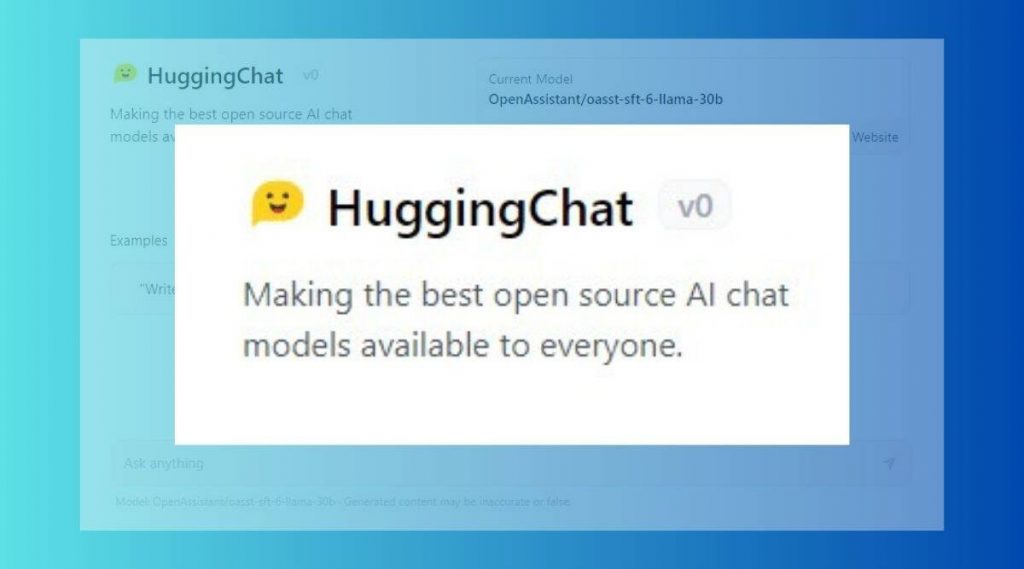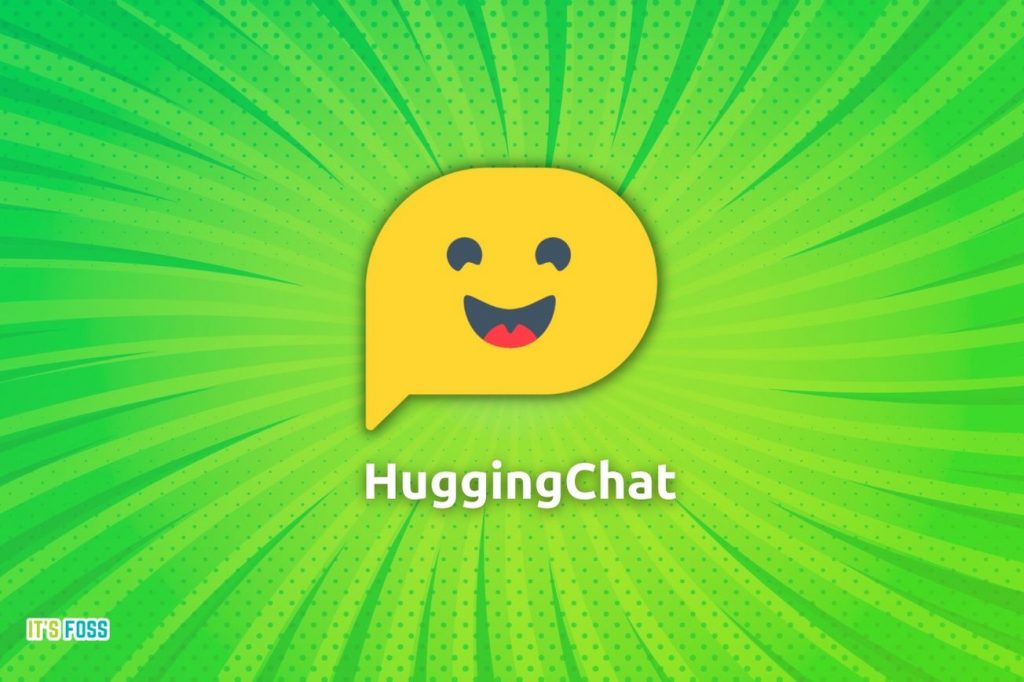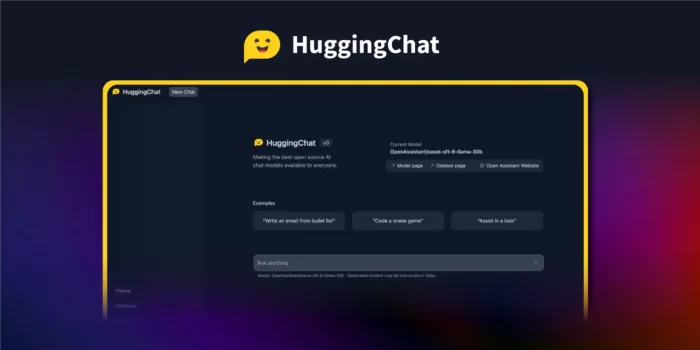The rising popularity and widespread usage of generative AI chatbots, such as ChatGPT, has piqued the curiosity of many in the technology sector. In order to keep ahead of the competition, Google and Microsoft have launched their own AI chatbots, such as Bard and Bing, respectively.
However, one issue with the corporate rush to embrace AI is that many of the best-performing chatbots are closed-source, which means their source code is not accessible to the public. This makes it difficult to comprehend how a specific tool works and limits developers’ ability to build on or learn from it without having to pay the corporation that owns the tool. Hugging Face has responded by releasing HuggingChat, an open-source alternative to ChatGPT.

HuggingChat is an artificial intelligence (AI) chatbot created by the open-source group Hugging Face, which is committed to the advancement of natural language processing (NLP) technology. Because it is open-source, developers can freely alter or build upon its source code without paying any license costs. This strategy encourages transparency and cooperation, both of which are necessary for the advancement of NLP technology.
HuggingChat, like ChatGPT, is built on the GPT architecture, but it is trained on a bigger dataset, which results in greater performance in specific tasks. Hugging Face says that HuggingChat has achieved cutting-edge results on a variety of benchmarks, including the SuperGLUE benchmark, which tests NLP model generalization capacity.

HuggingChat also offers a user-friendly interface, an easy-to-use API, and simple documentation. HuggingChat is simple to incorporate into apps, making it a good solution for anyone wishing to construct AI chatbots.
HuggingChat is a viable alternative to ChatGPT owing to its open-source approach and higher performance in specific jobs. Its simplicity and openness make it an appealing option for people interested in NLP research and development.
Finally, the growing popularity of generative AI chatbots has resulted in the creation of a number of tools, like ChatGPT and HuggingChat. HuggingChat, on the other hand, is a viable alternative because to its open-source approach and higher performance in particular jobs. HuggingChat will play an important role in enhancing NLP technology and boosting cooperation among the academic community as the AI environment evolves.


